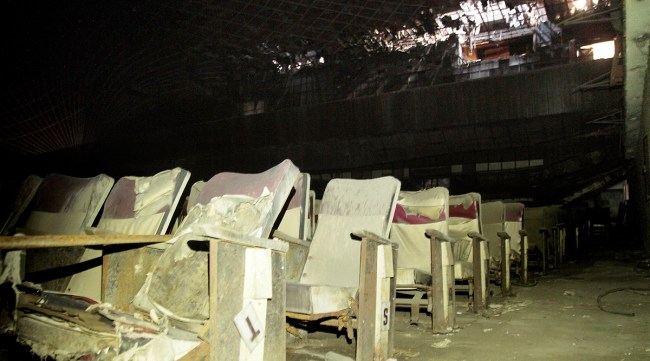Opinion Neelam Krishnamoorthy on desealing of Uphaar Cinema: Justice denied to us, again
For us, some closure could have been possible even if we had received the court’s assurance that people playing with innocent lives will be held accountable and punished severely
 Today, the value of Uphaar Cinema — a site of mass murder — is 26 to 30 times more than what it was in 1997. (Express Archive Photo)
Today, the value of Uphaar Cinema — a site of mass murder — is 26 to 30 times more than what it was in 1997. (Express Archive Photo) The Patiala House Court, in its wisdom, decided to release Uphaar Cinema on August 2 and give it back to the convicts Sushil and Gopal Ansal. Given that, I am forced to ask one question: Who, in this legal battle, has lost and who has benefitted?
Today, the value of Uphaar Cinema — a site of mass murder — is 26 to 30 times more than what it was in 1997. The culprits, therefore, with Uphaar back in their hands, have gained hugely. But what have we, the victims of the tragedy, gained? Where should we go to ask for justice?
Judge Sanjay Garg, while deciding on the application filed by the Ansals regarding the desealing of Uphaar Cinema, disposed of my petition which alleged that the applicants misquoted a 2004 Supreme Court judgment by omitting a few lines from the order. He noted that, in his view, the concealment of these lines could not have helped the applicant in any way, while ruling in their favour.
This is contrary to the finding of the Delhi High Court in Sushil Ansal v State of Delhi (2009) filed by the Ansals against the summoning order in the tampering of evidence case. The court in its finding held as follows: “It cannot be said that there is not even a prima facie [case] made out against any of the accused and that because none of the accused had anything to gain by documents going missing or being tampered, they should be discharged. This Court would hasten to add that irrespective of the result of the appeals of petitioners against the conviction pending before the Supreme Court, the offence of tampering with the judicial record by either causing documents to disappear or be mutilated or torn could be attracted and [in] that event each of the accused would be liable to face trial for the said offence.”
Both Sushil and Gopal Ansal have been convicted of tampering with evidence in the Uphaar Cinema fire case.
In the year 2021 too, Gopal Ansal stated in an affidavit stating that he paid Rs 30 crore as compensation to the victims. On the contrary, the money was paid to the Delhi government and used for setting up a trauma centre, and for his own freedom.
Sushil Ansal has been getting his passport renewed for 20 years without seeking or acquiring the requisite NOC from the court. He also allegedly filed a false affidavit stating that he has no criminal cases pending against him and has never been convicted. The court has taken cognisance of these offences too.
It is the Ansals’ modus operandi to mislead the courts by filing fabricated documents and tampering with judicial records to get favourable orders. If and when exposed, they instruct their senior counsel to apologise to the court stating that the violations were inadvertent. The courts do not take any cognisance. They must do so. They should also suspend the licence of the lawyer who filed the petition.
There can be no closure for us or for the other victims of the Uphaar tragedy, simply because our grief, mental and emotional agony and sense of loss are incalculable. But what the desealing of the Uphaar Cinema conveys to us, with a terrible and tragic finality, is something that we have known for some time now: The justice system in India is not just severely flawed but myopic and lacking in vision. It permits and encourages serial offenders, convicts, and criminals to get away, either by paying for their freedom or manipulating the system with power and wealth. They are permitted to get away even when their criminality is proved beyond reasonable doubt — not once, but repeatedly. Justice is clearly not for those who approach the courts with genuine belief, hope, sincerity and integrity. In India, it is available for those with bulky pockets and friends in high places.
For us, some closure could have been possible even if we had received the court’s assurance that people playing with innocent lives will be held accountable and punished severely. Instead, what we have been left with is a sense of betrayal and the nightmarish realisation that despite our best efforts, the courts in India, from the lowest to the highest, will set precedents that will encourage offenders to murder, tamper with evidence and do so repeatedly without any fear of punitive action.
The writer is chairperson, Association of the Victims of Uphaar Tragedy. She lost both her children in the Uphaar Cinema fire in 1997






